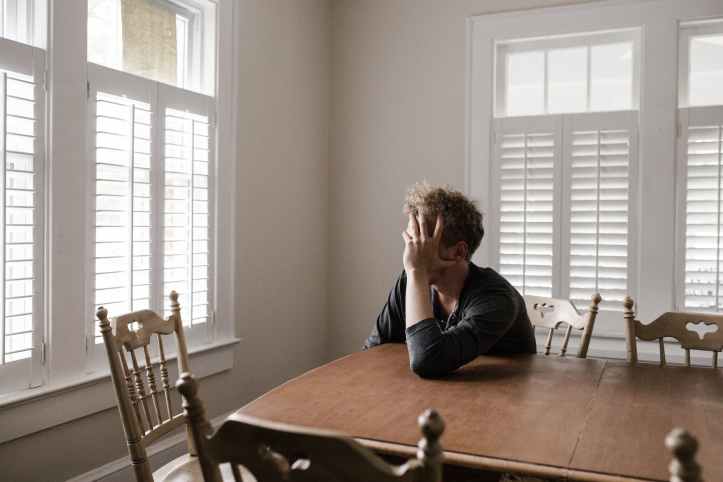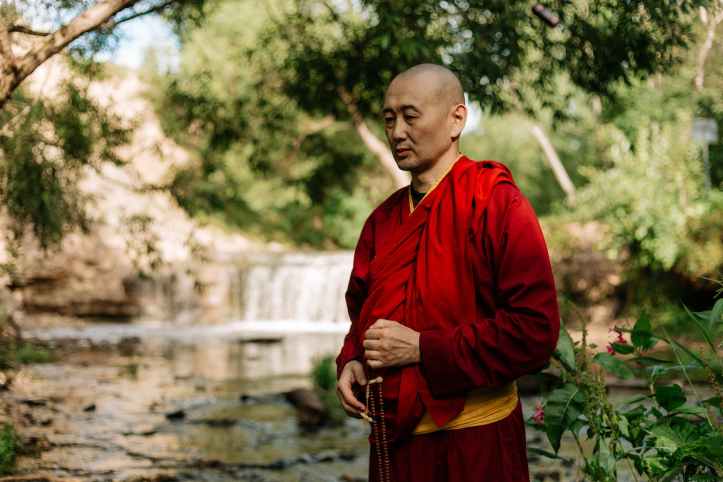Have you ever found yourself lost in a stream of thoughts that seem to never end? Maybe you’ve tried to escape these thoughts through food, drinks, or even social media. But no matter what you do, they seem to persist. The truth is, these thoughts and emotions stem from our unprocessed past experiences.

Our unprocessed past refers to those experiences that brought up intense emotions and thoughts but were never fully dealt with. Maybe it was a traumatic event, a breakup, or a difficult childhood. Whatever it may be, the emotions associated with these experiences can linger within us and affect our present mental and emotional state.
When we experience challenging situations in our lives, the usual route we take is escape. Some people turn to food, drinks, drugs, or other forms of entertainment, while others may use socializing or partying as a means of escape. However, these coping mechanisms only provide temporary relief and can lead to addiction if used consistently.

The problem with using escape as a coping mechanism is that it does not address the root cause of our emotions and thoughts. It merely masks them, allowing them to fester and resurface later on. We may think we have escaped our problems, but in reality, they continue to linger in our subconscious mind, forming limiting beliefs that shape our worldview and behavior.
This is where the spiritual path towards enlightenment comes in. It requires us to face our emotions and thoughts rather than escape from them. By confronting these feelings, we can begin to unravel the limiting beliefs that have been holding us back and begin the journey towards self-mastery.
Let’s take an example of someone who has experienced a difficult breakup. This person may turn to alcohol as a means of escape, believing that it will help numb the pain. However, the alcohol only provides temporary relief and does not address the root cause of their emotions. As a result, the emotions and thoughts associated with the breakup continue to persist, leading to further negative behaviors and beliefs.

The spiritual path towards enlightenment involves facing these emotions head-on. It requires us to acknowledge our feelings and process them in a healthy way. This can involve talking to a therapist, meditating, or engaging in other self-care practices. By doing so, we can begin to release the emotions associated with our unprocessed past and reduce the pressure within us.
As we deal with our emotions, we naturally experience fewer compulsive thoughts. This is because our thoughts are often a manifestation of our emotions. When we address the underlying emotions, we can begin to free ourselves from the cycle of negative thinking.
It’s important to note that thought is not the enemy. In fact, thought is a tool that we can use to create and explore the world around us. However, when we allow our thoughts to control us, we become trapped in a never-ending cycle of thinking that can be exhausting and detrimental to our mental health.
The key to using thought effectively is to use it as a tool rather than being used by it. Let’s take an example of someone who wants to build a house. They will need to use thought to plan and design the house, research the materials needed, and make calculations. All of this requires the use of thought, and it is essential for creating something tangible in the world.
Enlightenment is a major step in human evolution, but it’s not something we should focus on achieving. Instead, our focus should be on self-mastery and managing ourselves efficiently in the present moment. This involves being aware of our thoughts and emotions and taking action to address them in a healthy way.

In conclusion, our unprocessed past can have a significant impact on our present thoughts and emotions. It’s essential to face these emotions head-on and process them in a healthy way rather than relying on escape mechanisms that only provide temporary relief. By doing so, we can begin to free ourselves from the cycle of negative thinking and limiting beliefs that hold us back. Remember, thought is a tool, and it’s up to us to use it effectively rather than being controlled by it. Let’s focus on self-mastery and managing ourselves efficiently in the present moment, and enlightenment will naturally follow.
